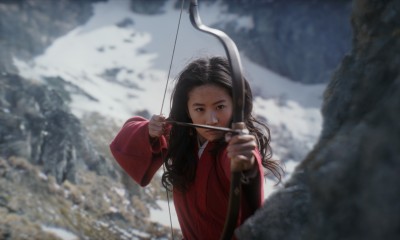The Post, Digital and Visual Effects grant aims to foster capacity and new business development for large budget PDV Production in New Zealand.
Eligible productions can access a cash grant equivalent to 20% of Qualifying New Zealand Production Expenditure (QNZPE) up to QNZPE of $25 million, and 18% of QNZPE for QNZPE above $25 million.
Peter Jackson’s They Shall Not Grow Old utilised the PDV grant, for work done by Park Road Post Production, in Wellington, New Zealand.
Before director Peter Jackson could begin work on the documentary, They Shall Not Grow Old, all of the footage supplied by London’s Imperial War Museum needed to be restored and revitalised, becoming Park Road Post Production’s largest ever restoration project.
The documentary feature They Shall Not Grow Old used state of the art technology to restore original archival First World War footage more than a 100-years old and tell the story of the reality of war on the front line.
During 2015, hundreds of hours of footage, scanned from film in the Imperial War Museum’s archive, was supplied to the team at Park Road Post Production, who embarked on the mammoth task of restoring the footage which was vital to the aim of giving people a fresh view of what life was like during the Great War.


Park Road’s Picture Manager said the restoration process involved cleaning up the scanned archival footage, removing scratches and dirt which were present in the images from the original film; de-noising the footage and then re-timing as all of the footage was recorded on hand-cranked cameras.
“Because the footage was not recorded at 24 frames per second, we had to re-time every piece of footage it, so it didn’t look out of place with film and video we see today. Once the cleaning process was completed, we provided versions of all of the footage in black and white to Stereo D for colourisation and for Peter and his editorial team to begin looking at the footage.”



Park Road Post Production’s general manager Dean Watkins said the restoration part of the project was completed over three years and involved a team of up to eight people.
Park Road Post Production also did the final sound mixing and colour graded the black and white footage after the colourisation and the 3D process and completed all the final colour work.
“This was easily the largest and longest restoration project we have worked on, due mainly to the amount of scanned footage and the post production processes employed to deliver the final look and sound for the film.”
Watkins said the Park Road Post Production experienced restoration team are proud to have contributed to such an important project and to have a set a new benchmark for film restoration work.
“This demonstrates that old footage can not only be restored, it can be enhanced and used in new ways to tell stories about our history.”
At the end of the process, all of the restored footage was gifted back to the Imperial War Museum for their use.
About the documentary:
Using state-of-the-art technology and materials from the BBC and Imperial War Museum, filmmaker Peter Jackson allows the story of World War I to be told by the men who were there. Life on the front is explored through the voices of the soldiers, who discuss their feelings about the conflict, the food they ate, the friends they made and their dreams of the future.

















































